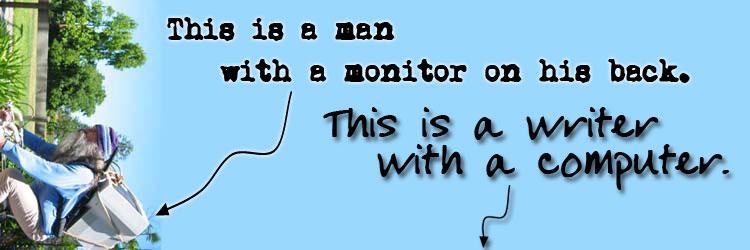“We don’t have many t-shirts left,” the younger woman said. “Just large.”
I wanted to leave the table, but Chris had guided me there. I wanted an easy exit, yet I wanted to be respectful and polite. So I decided to continue the small talk across the table littered with t-shirts for sale, pamphlets for the course, and brochures for something that I absolutely did not want to do. “Why do you think that you only have large t-shirts left?” I said, not expecting a complete answer.
The younger woman immediately interjected, perhaps her words trying to fill the words. “I think that it’s because most people like tight t-shirts. So that’s why we have larges left.”
I stared back at her, surprised. I thought about how my own inventory for marketing. About how I misestimated, constantly misestimated. I ordered too many XLs and Ls. I was overburdened with them. A thought crossed my mind that their clientele was not large-sized and I wondered if her response was intended to be politically correct. She didn’t want to mention that large clients never came their way. “Tight t-shirts,” I mumbled and finally decided to play along. “Well I have that same problem.”
The conversation halted, and I stared back at them, prodding them to speak. After all, we were at the Museum of Awkwardness. “So what brings you here?” the older woman said.
“Because I embrace awkwardness all my life,” I said and outlined all the various moments. “Sometimes I enjoy the uncomfortable. It pushes me beyond my comfort zone to understand the world better.”
“Isn’t this the place?” the older woman said.
“What do you do?” the younger woman said.
“What do you mean?”
“How do you spend your time?”
I hesitated, mentally flipping through pages of my usual responses. I hated boring people. I hated explaining concepts that people didn’t understand. I wanted to tell something quite fitting for the situation and the words just tumbled out. “I think,” I said. “That’s what I do. I look to understand why.”
I read their faces and knew that wasn’t quite the answer. It never was quite the right answer as they were trying to size me. “What do you do other than that?”
I relented and said, “You mean to generate income?”
She nodded.
“I also think,” I said. “I ask why as a designer and researcher.”
Silence descended as I stared back. Beat. I felt a desire to depart. I wanted to sleep. I wanted the extra snacks from the table. I wanted to sit in the car on the way home. I wanted to be in my bed. I took the cue. “Well, thank you for your time,” I said.
“Will we see you at the Wednesday event?” the older woman said with a wide smile.
I returned her gaze with a wide smile. “Probably not,” I said and their smiles dimmed. “I am, after all, embracing the awkward truth. It’s not for me.”
Outside, emboldened by the fearlessness around awkwardness, I called out a man who was awkwardly riding a bike with another bike in his arms as he moved down the sidewalk. “Sir, excuse me, do you need help with your bike? I can carry it for you. Looks like you need help, because the seat just fell off.”
The man laughed, trying to get away.
“Also looks like the bike may not belong to you, sir. But I’ll help you. I’ll help you.”
